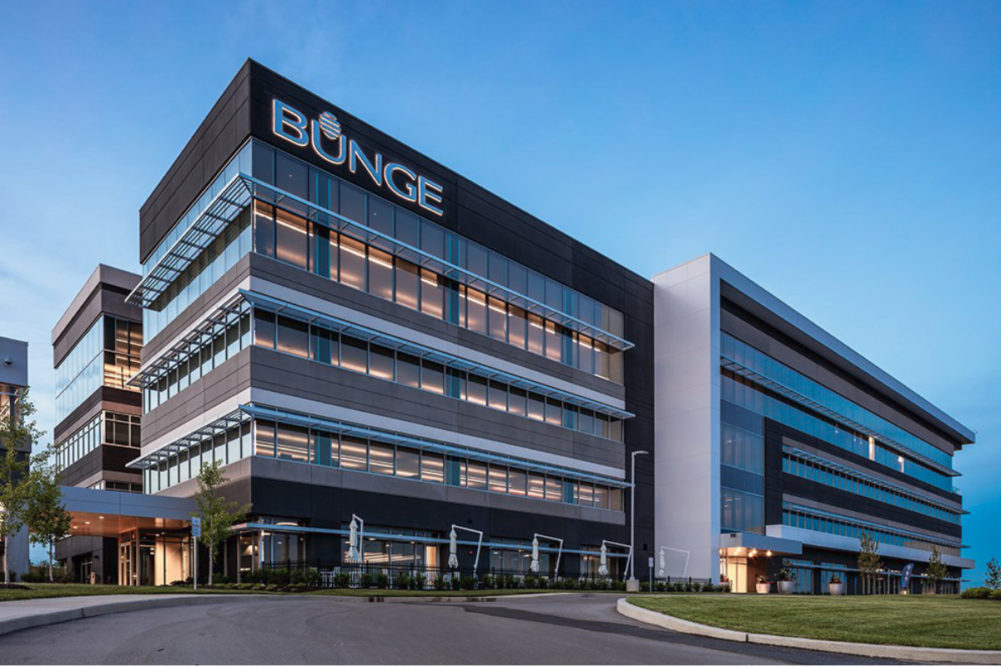NEW YORK CITY, NEW YORK, US — With the renewable diesel market expected to soar, Bunge is positioning itself to be at the forefront of feedstock supply and innovation.
“We're the largest global oilseed crusher,” said Greg Heckman, Bunge chief executive officer and director during a May 18 presentation during the BMO Capital Markets Global Farm to Market Conference in New York. “We need to lead like an industry leader and have the origination and the distribution capabilities to support that and then really lean into our platforms around specialty fats and oils, our growing plant proteins business and then, of course, renewable feedstocks.”
Heckman said he’s glad the company did the heavy lifting early on, especially given world events the last two years. The beginning of Bunge’s turnaround started three years ago with a trade war, then African swine fever, the COVID-19 pandemic and now the war in Ukraine and inflation.
“I think it says something about the resilience of the global footprint of Bunge and we’ve put in place from an operating model and a team to be able to perform in all of those while continuing to improve the asset base,” he said. “There's no doubt the cycles will always go up and down in these industries, but what we're going to make sure is that we can perform as well or better than anyone regardless of the cycle.”
Bunge’s future projects span all four platforms, Heckman said. With demand expected to increase for renewable diesel, Bunge will add crush on both soy and softseeds. It’s also working on improving origination and the distribution of meals and oils.
“There’s going to be a lot of dislocation as the oil markets adjusts to renewable diesel demand in the US,” Heckman said. “And being basic in all oils is shifting those global flows. That'll be a real opportunity for us.”
As the largest global oilseed crusher, Bunge has had the benefit of talking with all the energy companies.
“The one thing that is absolutely certain is that they see renewable feedstocks and vegetable oil as one of the levers that they can pull in the transition to a lower carbon business over the next 10 to 15 years in liquid fuels,” Heckman said. “They’re making investments in assets, and it’s gaining momentum.”
Heckman said the more Bunge learns about it, the more respect it has for renewable diesel.
“We’re excited to have a great partner like Chevron,” he said. “It’s really opened our eyes to have that kind of partnership.”
The joint venture, which closed at the beginning of May, aims to establish a reliable supply chain from farmer to fueling station.
“We're excited about where that relationship can go and things that we'll begin to look to do maybe other places in the globe,” Heckman said.
Another exciting aspect of renewable feedstocks, he said, is that it’s not even clear what all the products and services are going to be.
“We’re doing things now on CoverCress and developing that. I think we’re going to see a number of other things where this demand is going to be in place and sustained, and long-lived capital will be willing to go to work,” Heckman said. “Part of the demand will be solved by seed technology, some of it by expanding current industry.”
It’s going to take a little bit of everything to meet the feedstock demands for vegetable oil.
“We’re going to add capacity in soy. There will be softseed capacity added. Cover crops will be developed,” Heckman said. “Some of the existing seeds will probably be technology-changed to be able to grow softseeds in different areas. You may see some of the existing seeds at higher percent oil.”
Oil is going to have a higher percent of the crush, and North America is not going to be an exporter, he said.
“There's no one silver bullet, but there will be investment, and there will be innovation,” Heckman said. “And the price signals will be there, and the market will do its work.”
When asked about the war in Ukraine and its impact on the agriculture cycle, Heckman said a big crop is needed in North America this year along with another large crop in South America next year.
“I think we need two good cycles to start to alleviate some of the pressure,” he said. “I think the market is sending the signal to the farmer. Historically, if you look, farmers have responded with production, and we’ll start to curb some demand and we’ll pull stocks out. So the market is starting to do its work there.”
Bunge has more than 1,100 employees in the region, and all of its facilities are shut down. But, where it can, the company is trying to run a little bit and supply vegetable oil for humanitarians, supply wheat to flour millers to create bread for humanitarian efforts and trying to open up some of the export lanes.
“It’s a trickle, probably less than 10%,” he said. “That dislocation, until it is solved, definitely makes a tighter global situation.”
Sunflower oil has probably been the biggest shock, and now feed grains and wheat as well, Heckman said.
“It will elongate the tightness, the cycle of volatility and elevated prices,” he said. “We can’t predict when Ukraine will come back online.”
When it does, the company will have to assess the condition of the infrastructure. There’s definitely been damage to roadways, railways and bridges, but not too much damage yet in ports, he said.
“There will be a period of time to get it back up to seed in the investments and just untangling-getting the mines out of the ports and untangling the logjam of all the vessels that are there,” Heckman said. “So it's many months to get it back to not full capacity once we can assess that, and then there’ll be investment.”




